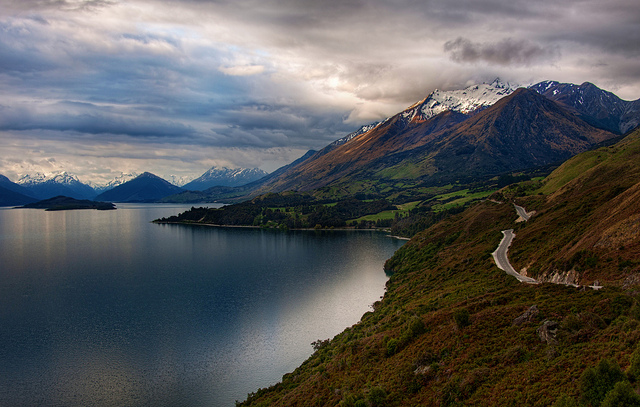By Roelien Steenkamp

His books include The Brotherhoods: Street Gangs and State Control, Gangs, Rituals and Rites of Passage, Natural Selections, African Journeys, Loveletters to Africa, Writing Left (a biography of Ruth First) and Blue Ice: Travels in Antarctica and The Woman who Lived in a Tree and Other Perfect Strangers. His first novel, Rainmaker, was a finalist for the 2009 European Union Literary Award.
Don has a PhD in political science, an MA in criminology, a BA in African history and has published a post-doctoral study on gangs, rituals and rites of passage. He has held lectureships in Journalism (Rhodes University) and Criminology (University of Cape Town) and completed his PhD research at London University.
ROELIEN STEENKAMP interviews Don about travel writing and becoming a travel writer.
Q: When is it safe to regard yourself as a professional freelance travel writer?
A: When someone buys what you write.
Q: What happens if a reader spots a typo or fault with some fact of which you were oblivious?
A: They write to the editor and you feel bad.
Q: If you’re going to be writing about a specific town, what are the first steps you must take?
A: Find out all about it first in books and on the Web; then start talking to people there.
Q: Let’s say you’re prone to writing very creatively (as you would in fiction), so much that you sometimes forget that the reader can’t read your thoughts and see everything as you do (especially if you’re a magic-realist writer), how do you divorce yourself from this tendency in travel writing? Any extra tips?
A: Phew! Always write for your reader, whether in magic realism or journalism. If you allude to something not easily understandable, make sure that pretty soon afterwards you clear up the issue. If you want to be obscure stick to poetry.
Q: How do you weave into the story a meme that some could regard as overly emotional or sentimental?
Nothing wrong with that. The bottom line is whether it’s an enjoyable read. Other than that, objectors can just bug off and read elsewhere. But, on the other hand, because your own sentiments are not replicable by a reader, it’s generally a bad idea to include too much of that. Readers can do what you do, but not really feel what you feel in that context.
Q: If you use a voice recorder and quote a person directly, at what stage does their direct speech in the article appear inauthentic?
A: When you don’t quote them correctly and sanitise their direct speech or restate it in your voice.
Q: If you spontaneously interview someone for some extra information and they only give their first names, must you also inquire their surnames for the piece? In my article, ‘Donald’ told me his name was ‘just Donald’. This seemed to add to his character.
A: It doesn’t. Always ask for a surname, even if they’re from the mafia. It’s much worse when all the white people have surnames and the black people don’t. Touch of ‘john the garden boy’.
Q: Must you tell ALL your interviewees that you will be quoting them in an article?
A: Well if you’re a journalist, their consenting to talk to you amounts to an agreement. The only time you have to worry is if they say ‘don’t quote me’.
Q: I like focusing on people’s appearances and characteristics and using this in the story. When does ‘character-describing’ become too much in an article?
A: When you do it too often. I can’t give an answer here without the context of the story. If its meme is the characters, it’s fine. Where it’s tacky is in a news story and the reporter says something like: ‘the deceased in the accident was a 22-year-old blonde wearing a floral dress and a plain, pleated blouse from Mr Price. Her fake Armani bag was found nearby.’
Q: I’ve always had a problem with sticking to the word count. I’m afraid the article will lose its essence if I don’t describe the scene adequately. Sometimes the most insignificant detail has some meaning to me. Besides choosing the most interesting facts and using strong verbs, what else can I do to shorten my piece?
A: The rule is less is more. Editors don’t like you to over-write. Over-long features indicate that you are disorganised or an unskilled writer. I do book reviews for the cape times and when they ask for 150 words that’s exactly what I give them, to the word. It is possible. Polishing is hugely creative and improves an article. I once threw away the first three chapters of a book I was writing. In retrospect, thank heavens.
Q: How many rejections must you receive to realise that you’re perhaps not really meant to be a travel writer?
A: Never give up. A person who’s not meant to be a travel writer is someone who doesn’t enjoy writing about travel. That’s the only yardstick.
Q: And lastly, a question for Don: When did you realise you wanted to become a writer? Did it come naturally? And have you ever received rejections? What advice would you give to a novice writer who is on the verge of giving up his/her dream?
A: Tolkien had 17 rejections for Lord of the Rings. JK Rowling had 10 for her first book. I have had many. Just have faith in yourself and keep getting better. Consider rejections as practice, file them for later consideration and push on. I once submitted what I thought at the time was one of my best features (still do) to National Geographic and the editor’s secretary’s deputy secretary sent me a brief email that said, in effect, ‘bugger off and don’t bother me again’. So it goes.
I started my writing life in radio (SABC) simply because I was an electronic engineer and got bored with circuits and wires and transferred internally to news. Fell in love with the power of words.
PHOTO CREDIT: Flickr.com: www.stuckincustoms.com














